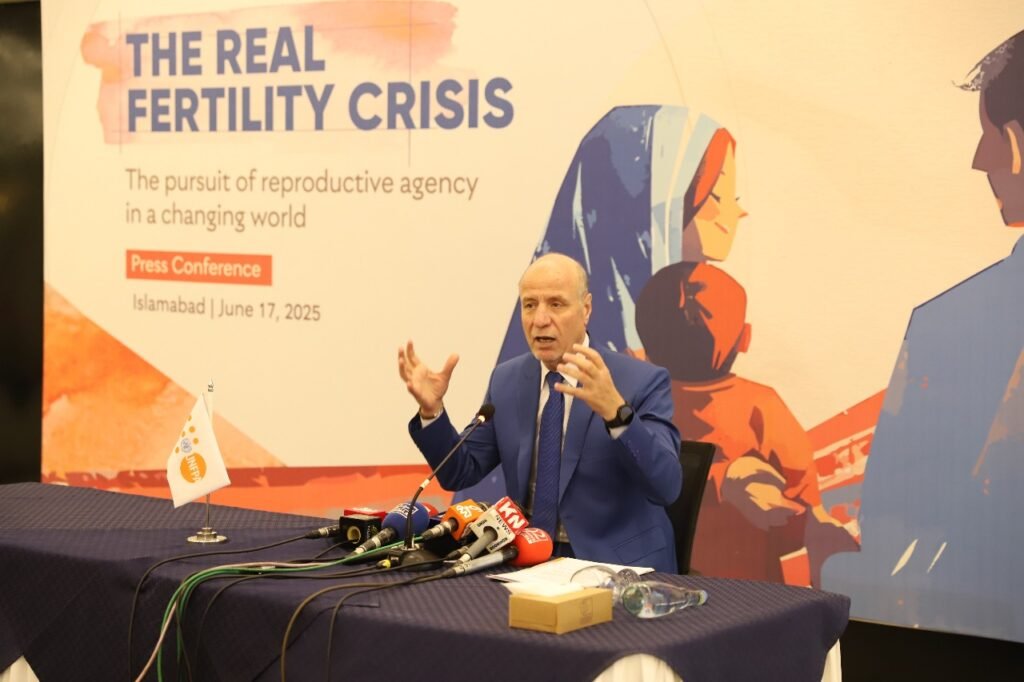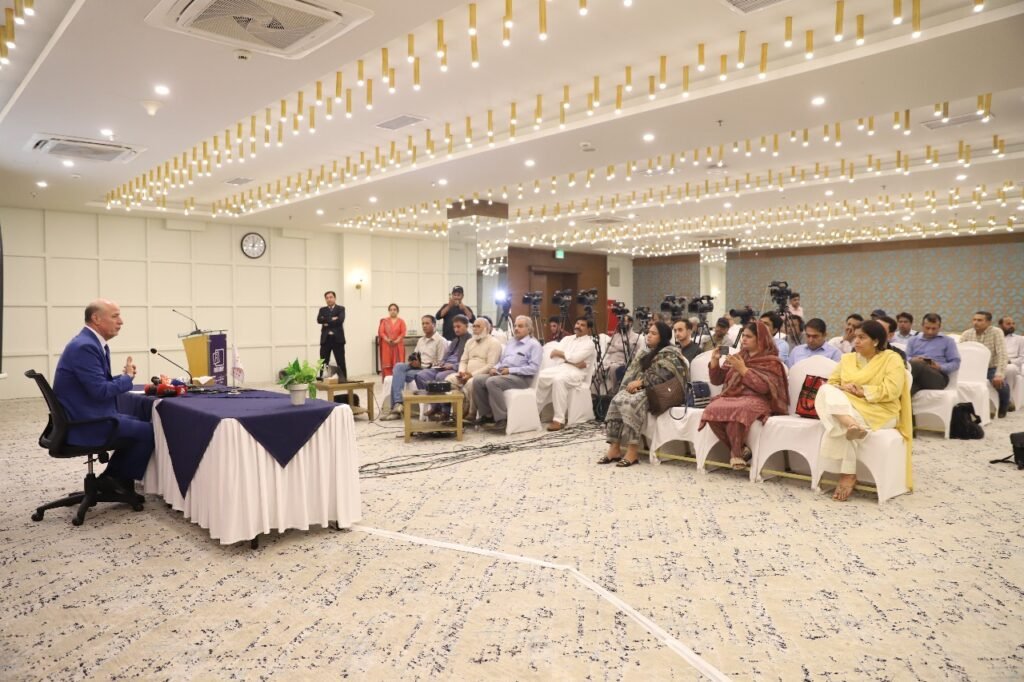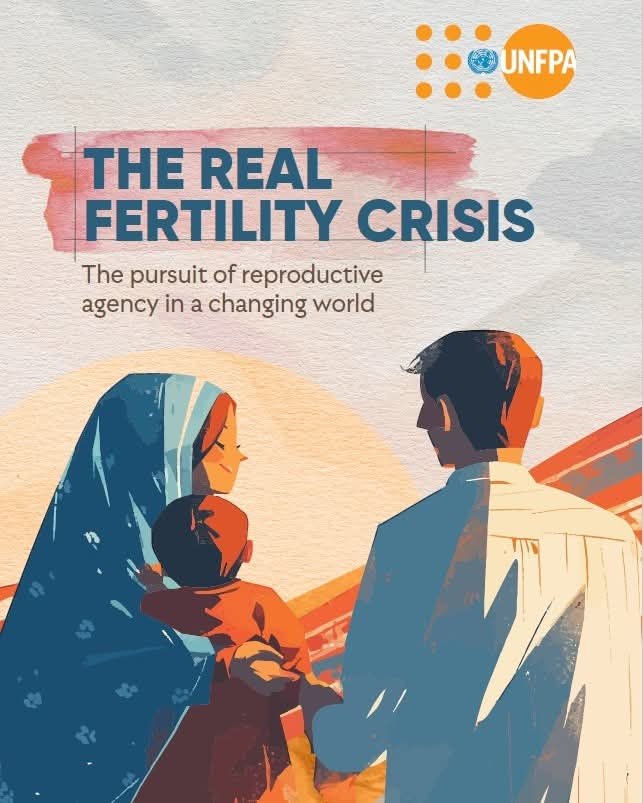
Dr. Luay Shabaneh, UNFPA Representative in Pakistan, addresses the media during the launch of the State of World Population Report 2025
Islamabad : Women and girls continue to struggle to make choices about the size of their family including barriers to exercise the reproductive choices. In Pakistan, only one in three women can make decisions about their reproductive health. UNFPA’s State of World Population Report 2025 report titled ‘The real fertility crisis: The pursuit of reproductive agency in a changing world’ says that too many couples around the world face obstacles to forming the families they desire.
Pakistan’s demographic future hinges on one pressing truth: around 67% of its population is under the age of 30. Yet, for many, especially women and girls, reproductive autonomy remains out of reach.

Every 45 minutes, one mother dies from a pregnancy-related cause.
The adolescent birth rate stands at 41 births per 1,000 girls aged 15–19, and over 18% of women are married before the age of 18.
32% of all married women aged 15–49 use modern contraception methods, while over 16% of women have an unmet need for family planning.
Drawing on academic research and new data from a UNFPA/YouGov survey spanning 14 countries – together home to over a third of the global population – the report finds that one in five people globally expect to not have the number of children they desire. Key drivers include the prohibitive cost of parenthood, job insecurity, housing, concerns over the state of the world, and the lack of a suitable partner. A toxic blend of economic precarity and sexism play a role in many of these issues, the report shows.
The data paints a stark picture:
More than half of people said economic issues were a barrier to having as many children as they wanted.
1 in 5 people report having been pressured to have children when they didn’t want to.
1 in 3 adults have experienced an unintended pregnancy.
11% say that unequal caregiving burdens would undermine their ability to have children.
40% of respondents over 50 say they failed to have the number of children they wanted.
‘Every couple must have the power to decide on their families and this choice should be supported by adequate systems and policies. Having a population-resource balance is the key here. Human resources need to be invested in through gainful employment, quality education and access to family planning services. All this will deepen the human capital in Pakistan, an empowered youth will be able to choose their futures and families freely.’ Said Dr. Luay Shabaneh, UNFPA representative in Pakistan.
The report warns against simplistic or coercive policies to declining birth rates – such as fertility targets – noting that these policies are largely ineffective and can violate human rights. Instead, UNFPA urges governments to empower people to make reproductive decisions freely, including by investing in affordable housing, decent work, parental leave, and the full range of reproductive health services and reliable information.
UNFPA also calls on societies to address all the ways that gender inequality undermines people’s family choices.

A tailored mix of economic, social, and political measures are needed to help people form the families they want. As policy makers consider how to navigate shifting population dynamics, UNFPA stands ready to support Pakistan in understanding the challenges they face, and designing solutions that will ensure rights and choices for all.







